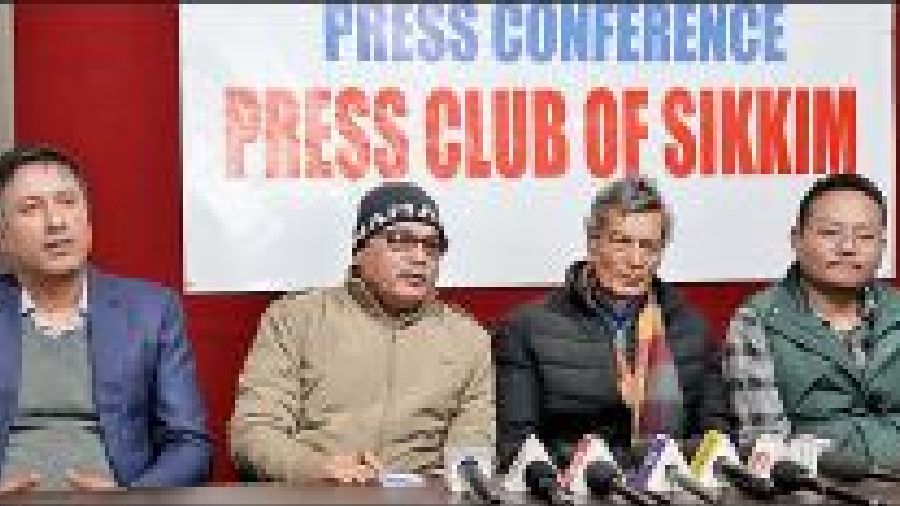The Joint Action Council (JAC) has hardened its position on the extension of income tax exemption to the Indian-origin old settlers by asking them to forego their “unjustified” claim that could have a bigger ramification on Sikkim and the Sikkimese people.
Passang Sherpa, a vice-president of JAC, claimed that since the old settlers controlled 90 per cent of Sikkim’s economy, it was only fair for them to pay the income tax. “They (the old settlers) must themselves withdraw their claim (for income tax relief),” he said at a press conference in Gangtok on Sunday.
Asked pointedly if granting the tax sop to the old settlers was justified, Sherpa categorically stated it was not. “Why it is not justified is because 90 per cent of Sikkim’s economy is in their hands, they have all the money, all the businesses are in their hands. So, if they don’t pay income tax, who is going to pay?” he asked.
In the absence of definite data, it was not possible to factcheck Sherpa’s claim on the old settlers controlling 90 per cent of the state’s economy, but sources in the commerce and industry department said it could be anywhere between 70 and 75 per cent.
The Supreme Court had recently extended income tax relief to the old settlers on a par with the Bhutia, Lepcha and Nepali communities, whose names are registered under the Register of Sikkim Subjects, and their descendants on a petition filed by the Association of Old Settlers of Sikkim.
The January 13 judgment had led to mass protests in the state for referring to the Sikkimese Nepalis as those of “foreign origin”, a remark that has since been deleted by the Supreme Court, and its directive to amend the Income Tax Act 1961 to include the old settlers in the definition of “Sikkimese” to enable them to enjoy the tax benefit.
The fear being expressed among the larger Sikkimese population is that the change in the definition could open doors for the old settlers to claim other rights and privileges enjoyed by the former, particularly since the court had extended the income tax relief on the basis of Article 14 of the Constitution, which provides equality before the law.
Hitherto, Article 14 had not been applied in Sikkim where old laws of the pre-merger days are still in use because they are protected under non-obstante clause of Article 371F, which was included in the Constitution at the time of the state’s merger with India in 1975.
“What they (the old settlers) should understand is that because of tax exemption granted to them, Article 14 is set to enter Sikkim which has never happened before. That is why to save the existence of Sikkim and the Sikkimese people, to honour Sikkim and Article 371F, they must themselves withdraw their claim,” said Sherpa.
JAC president Shanta Pradhan said the matter was of concern, and appropriate action would be taken to address this and other issues at the advice of an expert panel which has been formed by the council.
“The expert council will guide us on this,” he said.
The expert panel, Pradhan said, has been formed to examine the Supreme Court verdict and the Sikkim Assembly resolution related to it in all technical, legal and constitutional detail.
“Once we get the recommendations and report from the expert committee, they will be placed before the various councils like the youth, women, economic, students and vigilance. They will then give their directive to the central council of JAC as to what needs to be done,” he said.










